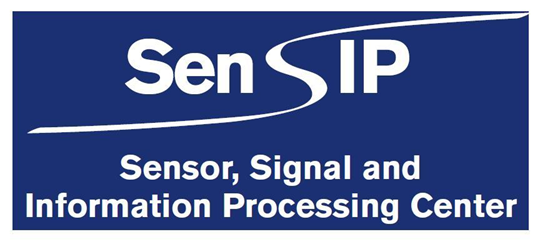
NSF Research Experiences for Teachers (RET) on Sensors and Machine Learning
PI:
Andreas Spanias, SenSIP Director
Co-PIs:
Jennifer Blain Christen, Jean Larson, Mi Yeon Lee
Program Overview
The Internet of Things (IoT), the ecosystem of physical objects connected via the internet, has seen rapid growth over recent years and has been enhanced by mobile applications. Machine Learning (ML) algorithms and sensors are critical to this technology, leading to a demand in developing sensors that are more efficient and less expensive. This award creates a new Research Experiences for Teachers (RET) site focused on applications of ML methods for sensor and mobile IoT. Each summer, ten high school teachers and two community college instructors will participate in research activities at Arizona State University. After a hands-on bootcamp centered on key concepts in ML, sensors, energy and health IoT, teachers will be immersed in a 6-week research program and mentored by a team of ASU faculty, graduate student advisors, and industry leaders. ASU will continue their engagement with teachers throughout the school years and offer assistance and feedback on transferring their research experiences into the classroom. The goal of this RET Site is to give teachers a deeper understanding of ML and IoT such that they can develop engaging materials around these topics for their classrooms. Moreover, teachers’ experiences will motivate and energize their students to engage in STEM activities and career pathways. Industry labs strive to produce inexpensive sensors for mobile IoT whose performance hinges on signal conditioning and classification software. Training faculty and teachers in this area requires an integrative approach as software designers need to understand application/sensor limitations. RET Site participants will be immersed in application-driven algorithm and software development for sensor and IoT testbeds. In addition, the RET will require a short hands-on bootcamp in machine learning designed to build their knowledge in ML, sensors, IoT with the focus on developing materials for their classes.Industrial mentors and curriculum specialists will be engaged to provide reviews of research and instructional plans.
The RET site objectives are to:
a) introduce teachers and instructors to research practices by immersing them in government/industry research activities,
b) engage them in the development of machine learning and signal processing methods and software for sensor and IoT health and
energy research,
c) motivate and guide teachers to adapt RET experiences into compelling teaching materials.
d) built basic programming skills for machine learning/artificial intelligence algorithms for energy and health analytics
The RET will disseminate publications and outcomes to conferences and teaching standard organizations. Teachers will create hand-outs and presentations to support their instructional plans. The RET site will include industry participation from the sensor signal and information processing (SenSIP) industry-university center which is also an I/UCRC site.
Covid-19 : This year the RET will be virtual with online sessions, presentations and machine learning artificial intelligence programming
This project is funded by NSF Award 1953745.


